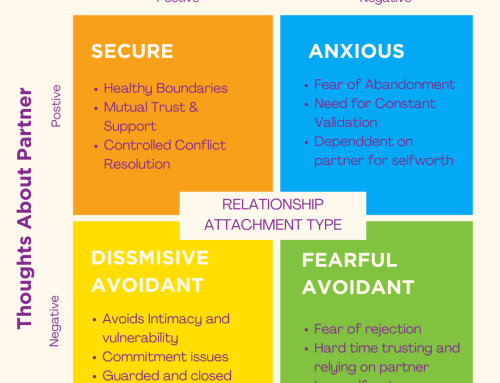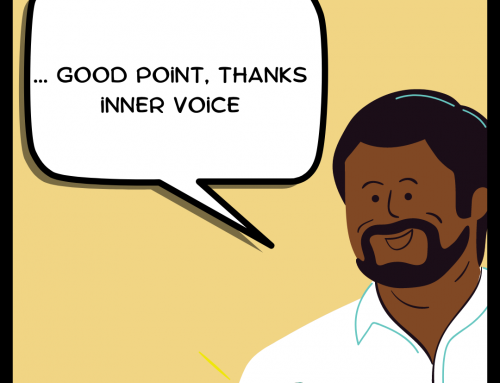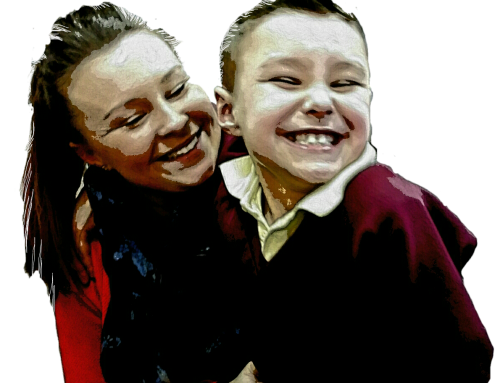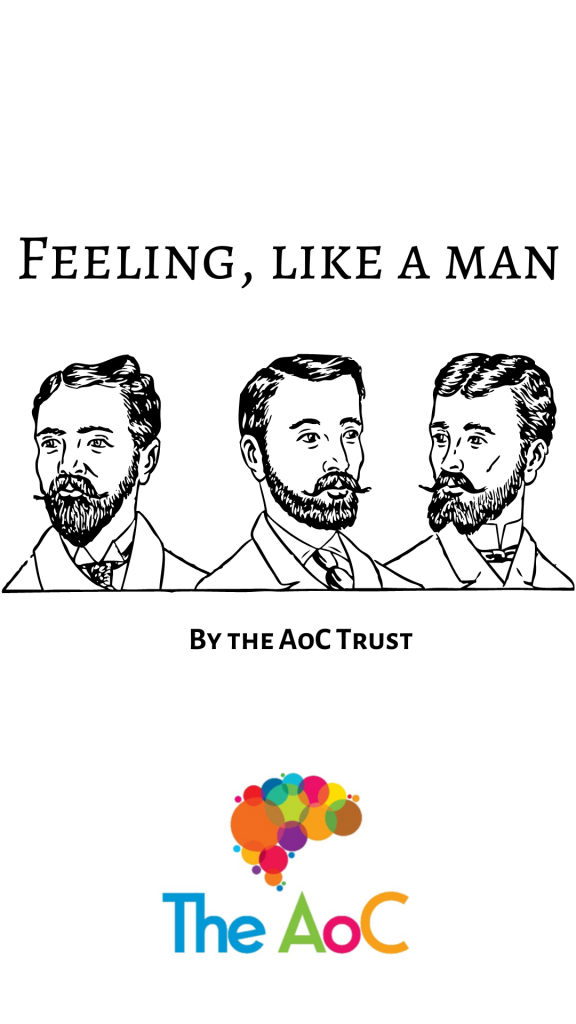

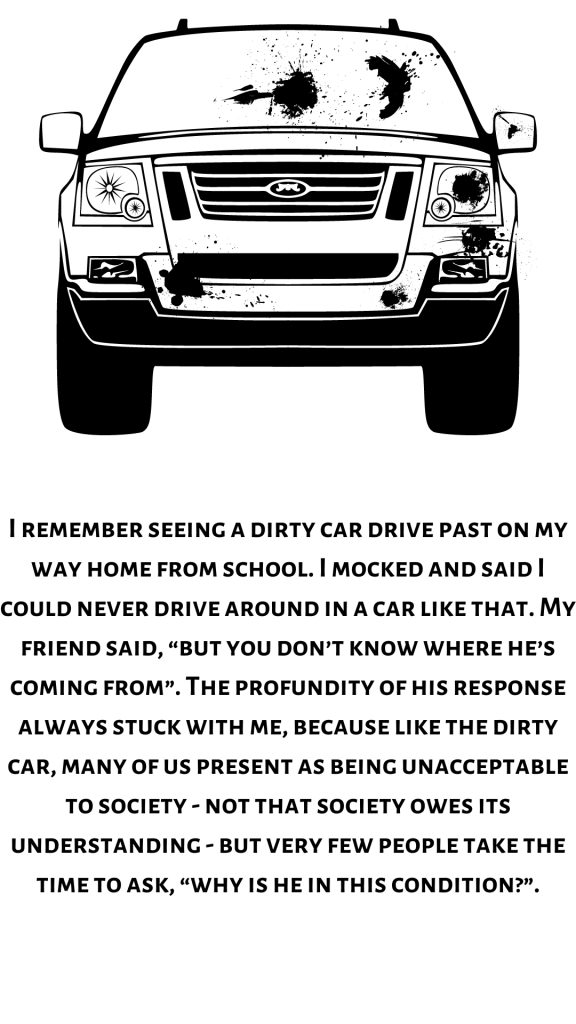
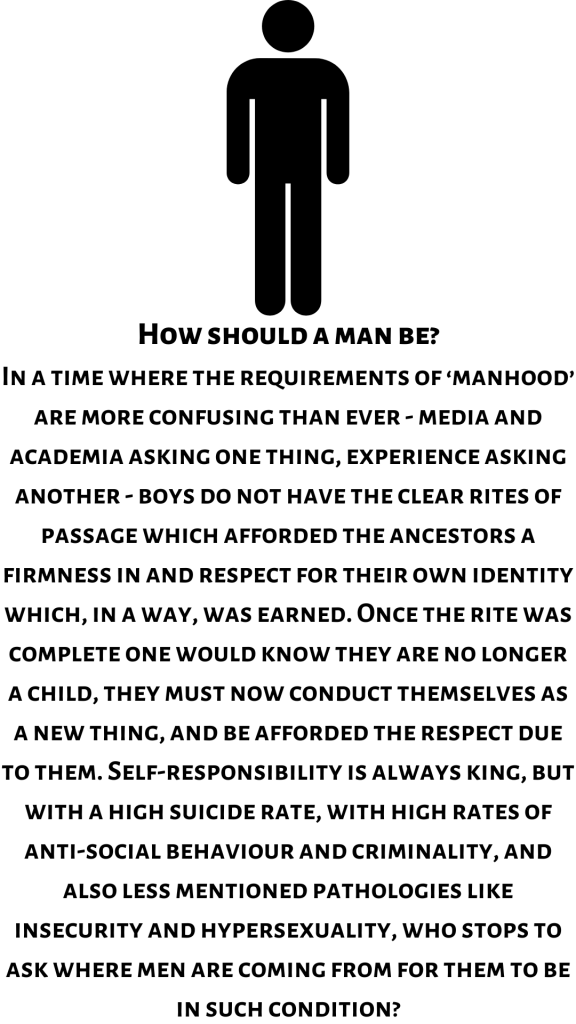
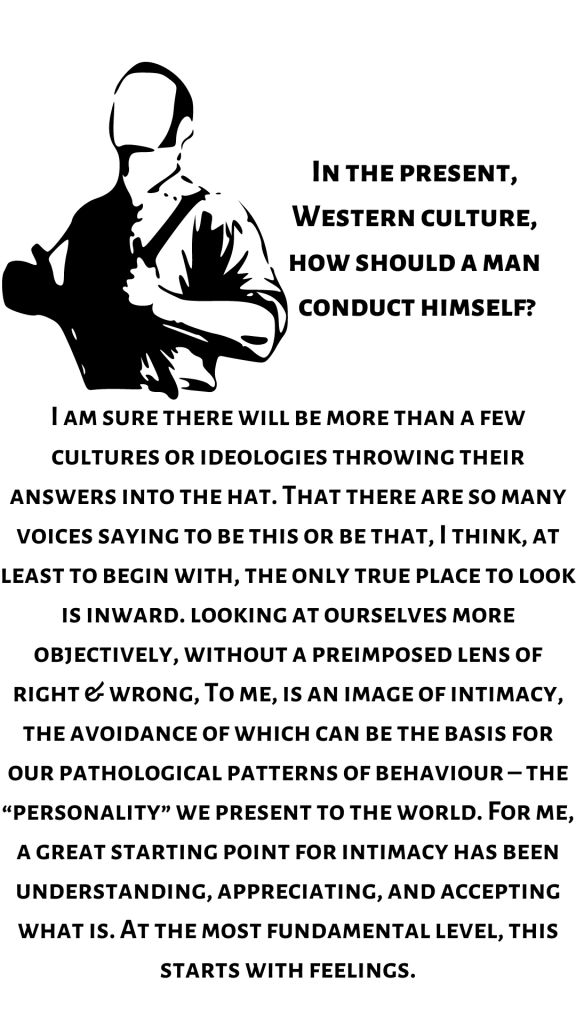
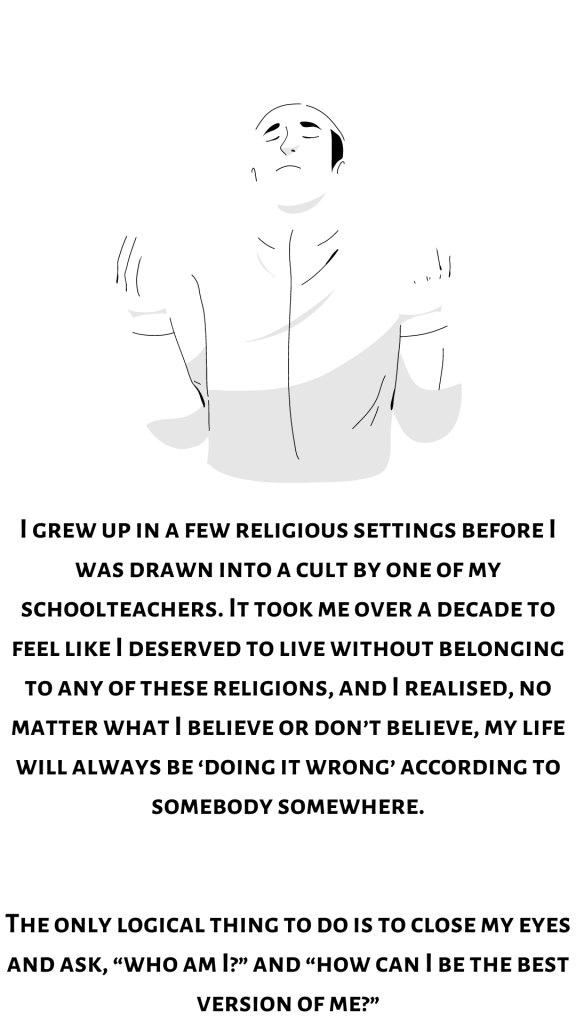
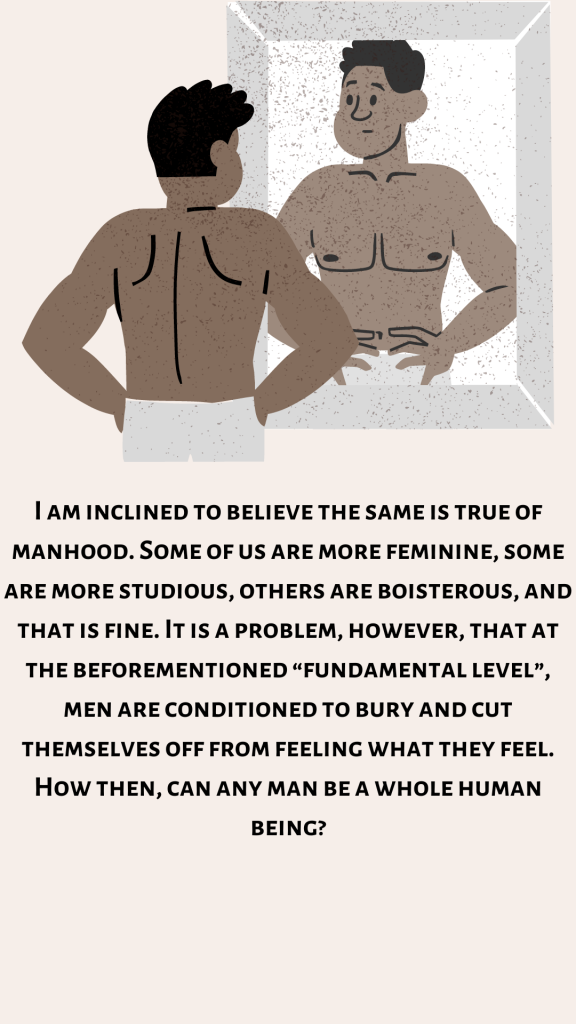
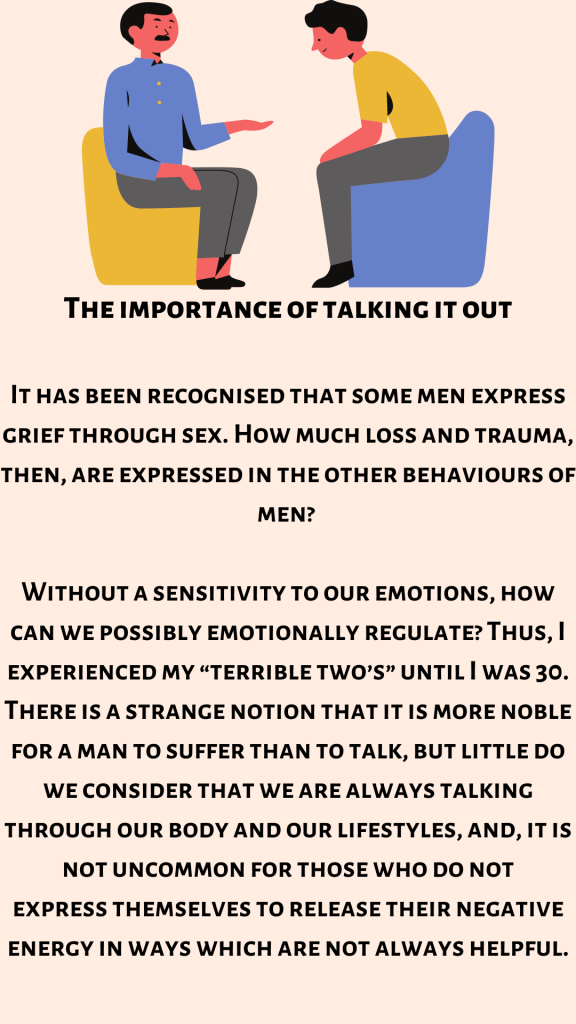
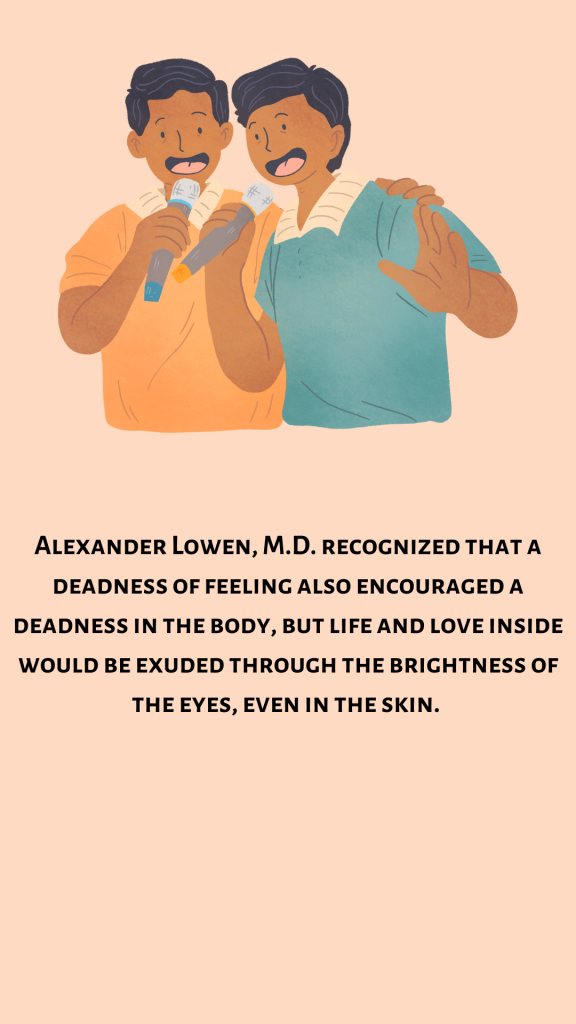
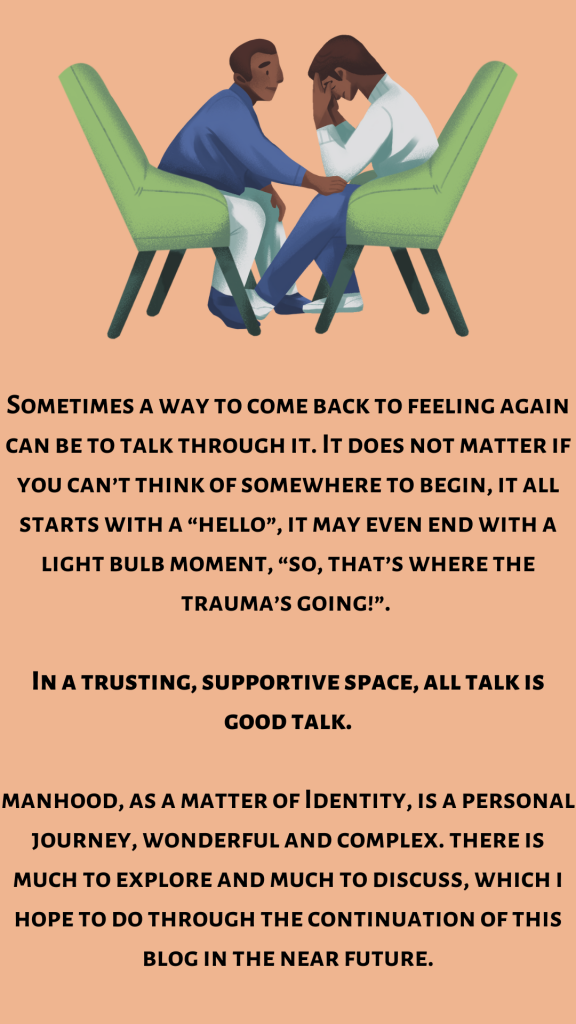

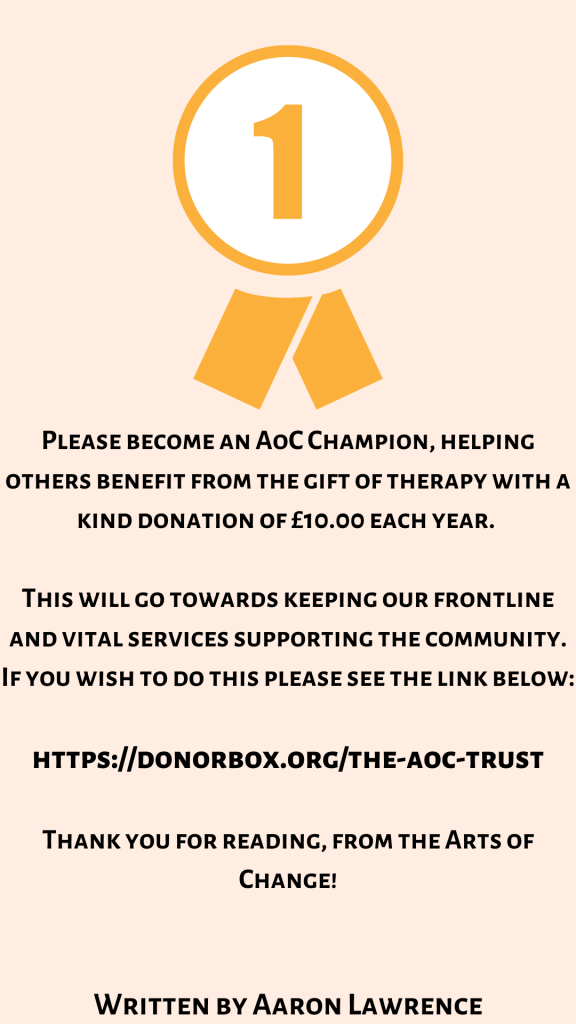
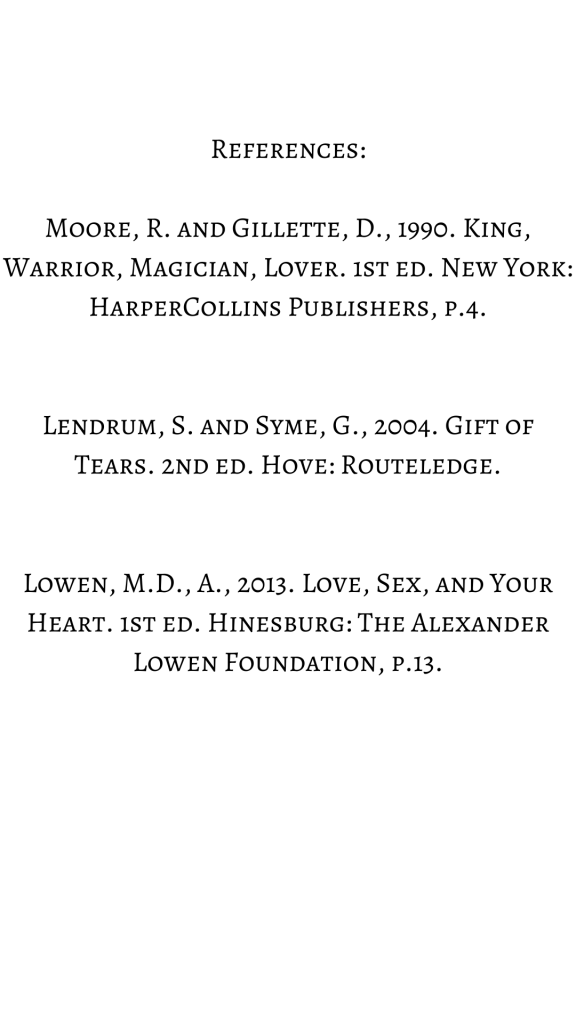
Feeling, like a man
How do men start a conversation?
What do you say after you say hello?
“So, how’s the trauma going?”
I was never any good at small talk.
It’s that British culture; that stiff upper lip. I know the smell of my moustache better than my
feelings.
“Be reliable”, “Be efficient”, “Be powerful”, “Be driven”; all good messages for a man to receive
about who he should be, but unfortunately most of us were not manufactured in Germany, and so
being human and vulnerable is something we shamefully hide in the boot.
I remember seeing a dirty car drive past on my way home from school. I mocked and said I could
never drive around in a car like that. My friend said, “but you don’t know where he’s coming from”.
The profundity of his response always stuck with me, because like the dirty car, many of us present
as being unacceptable to society – not that society owes its understanding – but very few people take
the time to ask, “why is he in this condition?”
How should a man be?
In a time where the requirements of ‘manhood’ are more confusing than ever – media and academia
asking one thing, experience asking another – boys do not have the clear rites of passage which
afforded the ancestors a firmness in and respect for their own identity which, in a way, was earned.
Once the rite was complete one would know they are no longer a child, they must now conduct
themselves as a new thing, and be afforded the respect due to them. Self-responsibility is always
king, but with a high suicide rate, with high rates of anti-social behaviour and criminality, and also
less mentioned pathologies like insecurity and hypersexuality, who stops to ask where men are
coming from for them to be in such condition?
In the present, Western culture, how should a man conduct himself? I am sure there will be more
than a few cultures or ideologies throwing their answers into the hat. That there are so many voices
saying to be this or be that, I think, at least to begin with, the only true place to look is inward.
Looking at ourselves more objectively, without an imposed lens of right & wrong, to me, is an image
of intimacy, the avoidance of which can be the basis for our pathological patterns of behaviour – the
“personality” we present to the world. For me, a great starting point for intimacy has been
understanding, appreciating, and accepting what is. At the most fundamental level, this starts with
feelings.
I grew up in a few religious settings before I was drawn into a cult by one of my schoolteachers. It
took me over a decade to feel like I deserved to live without belonging to any of these religions, and
I realised, no matter what I believe or don’t believe, my life will always be ‘doing it wrong’ according
to somebody somewhere.
The only logical thing to do is to close my eyes and ask, “who am I?” and “how can I be the best
version of me?”
I am inclined to believe the same is true of manhood. Some of us are more feminine, some are more
studious, others are boisterous, and that is fine. It is a problem, however, that at the
beforementioned “fundamental level”, men are conditioned to bury and cut themselves off from
feeling what they feel. How then, can any man be a whole human being?
The importance of talking it out
It has been recognised that some men express grief through sex. How much loss and trauma, then,
are expressed in the other behaviours of men? Without a sensitivity to our emotions, how can we
possibly emotionally regulate? Thus, I experienced my “terrible two’s” until I was 30. There is a
strange notion that it is more noble for a man to suffer than to talk, but little do we consider that we
are always talking through our body and our lifestyles, and, it is not uncommon for those who do not
express themselves to release their negative energy in ways which are not always helpful.
Alexander Lowen recognized that a deadness of feeling also encouraged a deadness in the body, but
life and love inside would be exuded through the brightness of the eyes, even in the skin. Sometimes
a way to come back to feeling again can be to talk through it. It does not matter if you can’t think of
somewhere to begin, it all starts with a “hello”, it may even end with a light bulb moment, “so, that’s
where the trauma’s going!”. In a trusting, supportive space, all talk is good talk.
Manhood, as a matter of identity, is a personal journey, wonderful and complex. There is much to
explore and much to discuss, which I hope to do through the continuation of this blog in the near
future.
To speak with someone non-judgemental, please contact the AoC on 01384211168. We have a
dedicated team of Therapeutic Clinicians, who will help you on your journey to being in a better
mental space.
Please become an AoC Champion, helping others benefit from the gift of therapy with a kind
donation of £10.00 each year. This will go towards keeping our frontline and vital services supporting
the community. If you wish to do this please see the link below:
https://donorbox.org/the-aoc-trust
Thank you for reading, from the Arts of Change!
Written by Aaron Lawrence
References:
Moore, R. and Gillette, D., 1990. King, Warrior, Magician, Lover. 1st ed. New York:
HarperCollins Publishers, p.4.
Lendrum, S. and Syme, G., 2004. Gift of Tears. 2nd ed. Hove: Routeledge.
Lowen, M.D., A., 2013. Love, Sex, and Your Heart. 1st ed. Hinesburg: The Alexander Lowen
Foundation, p.13.


